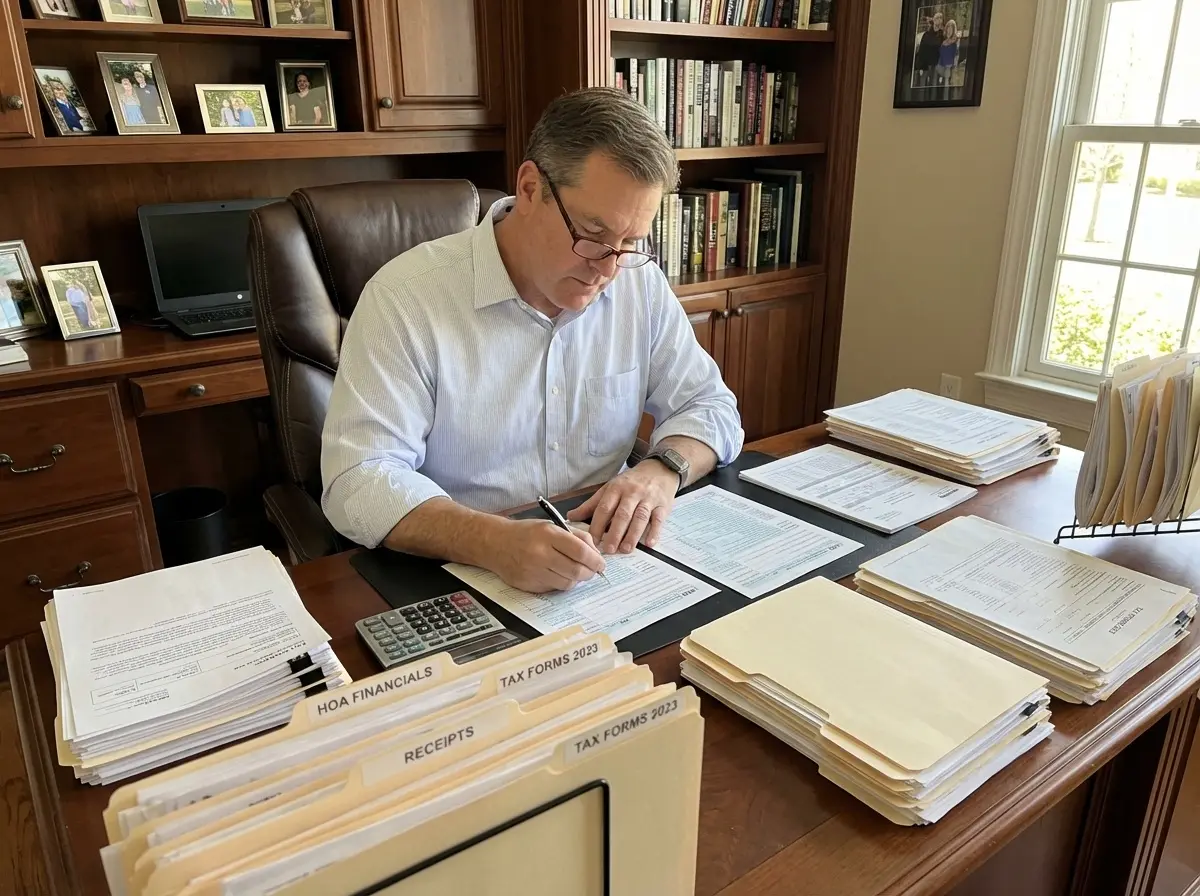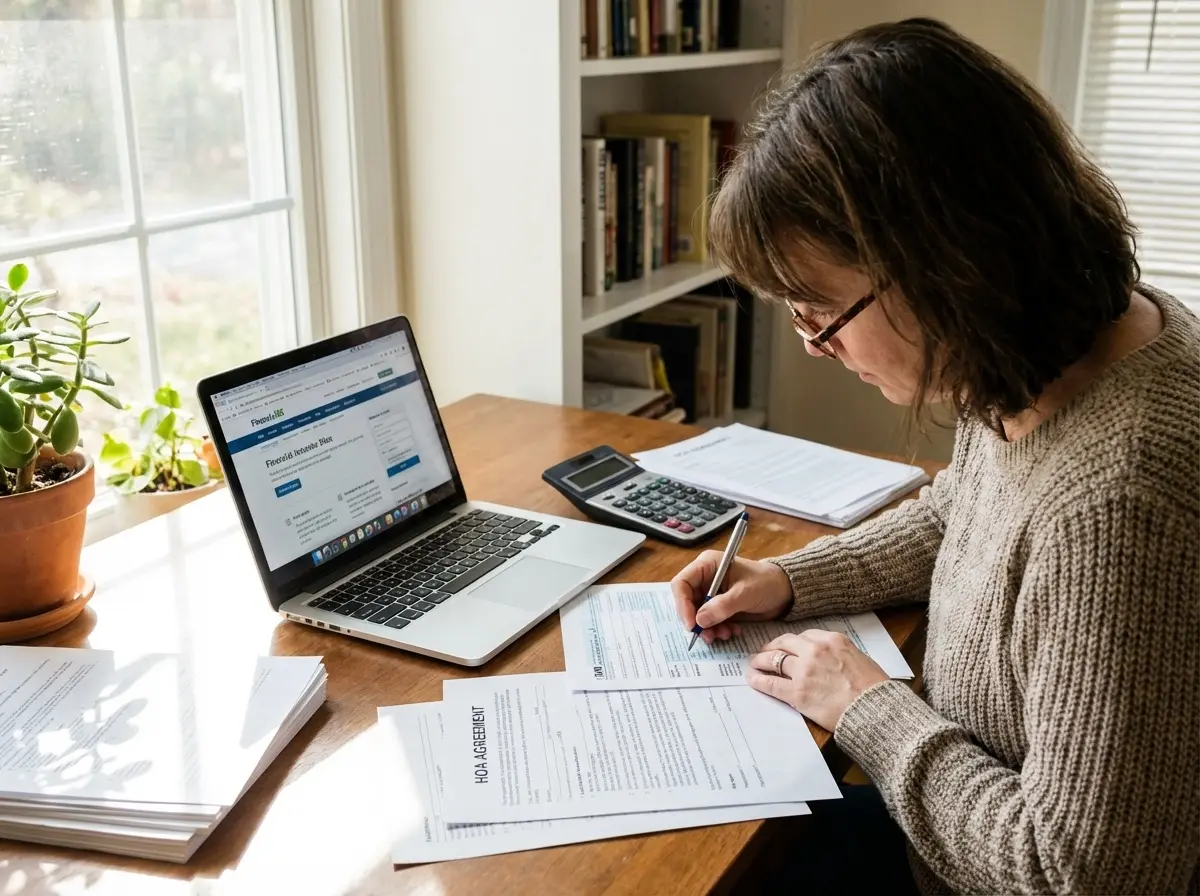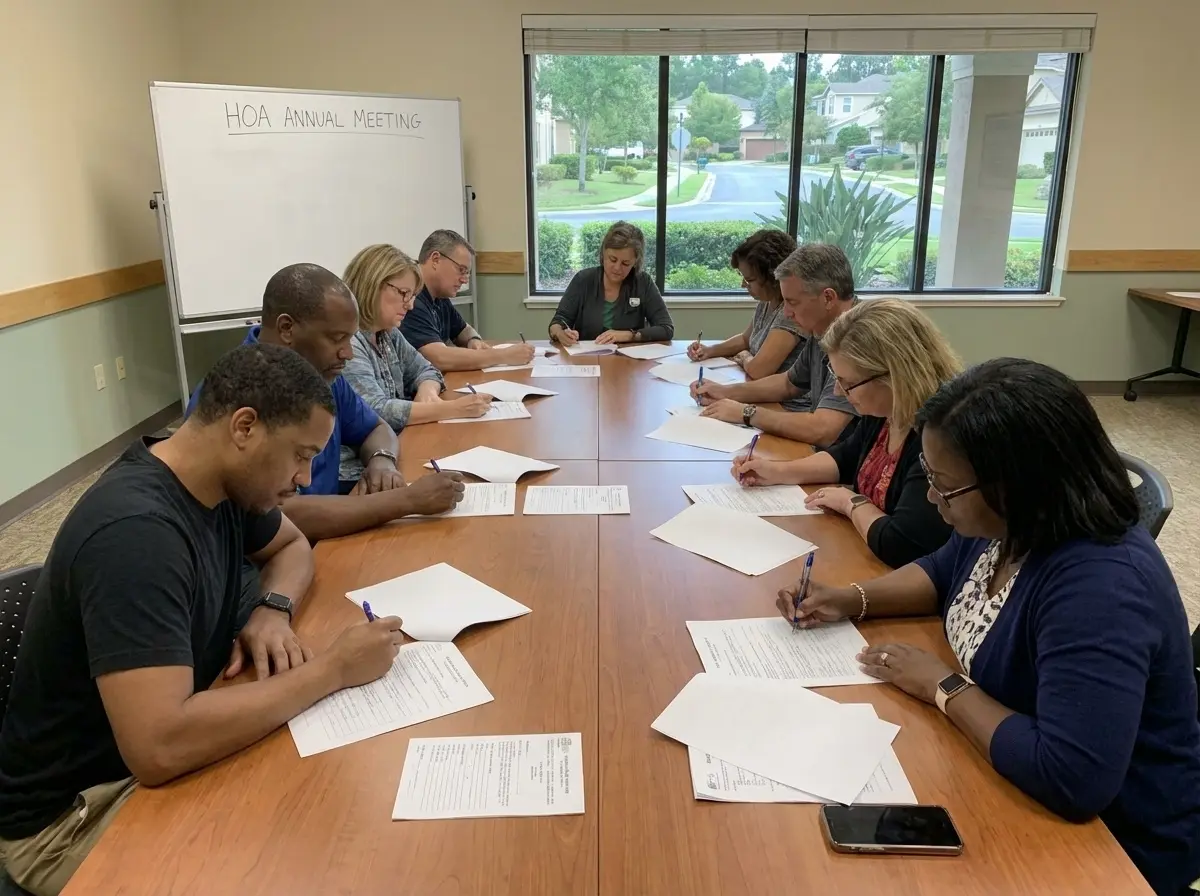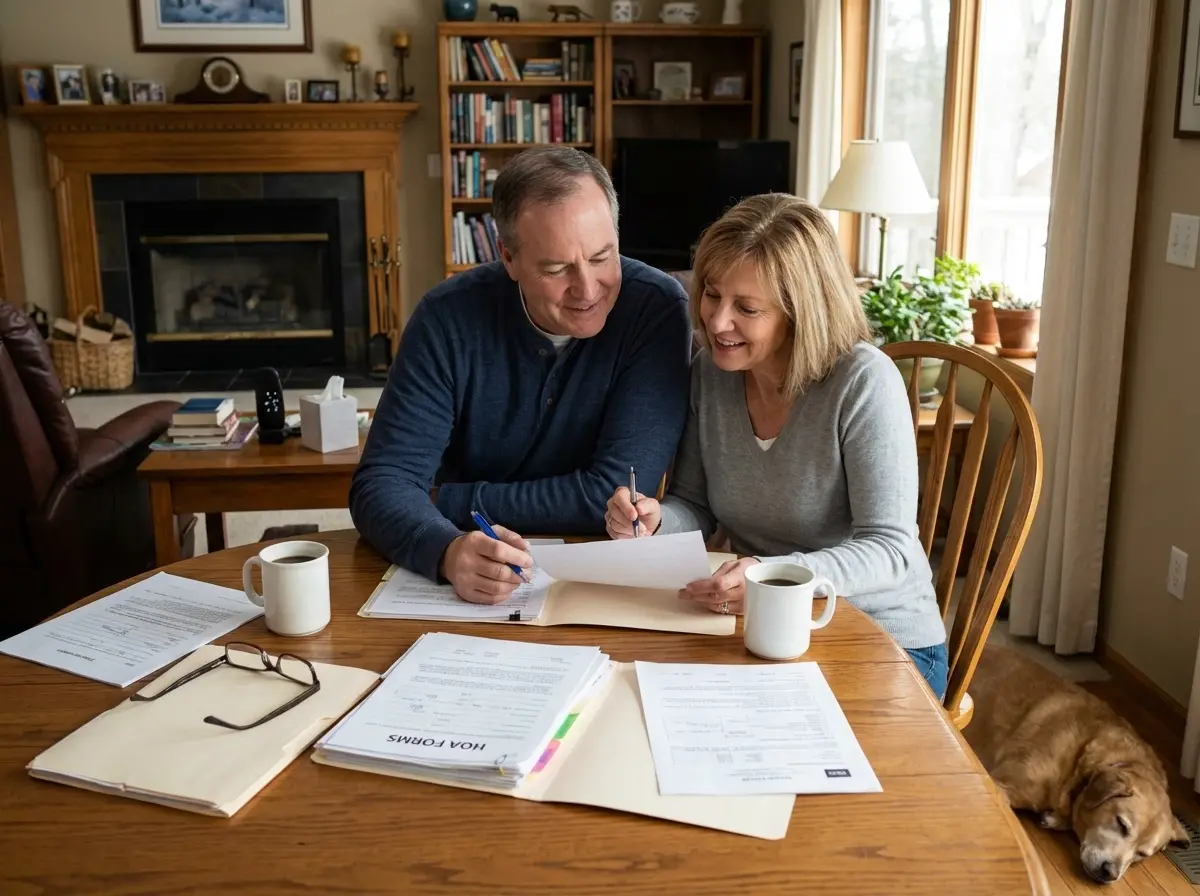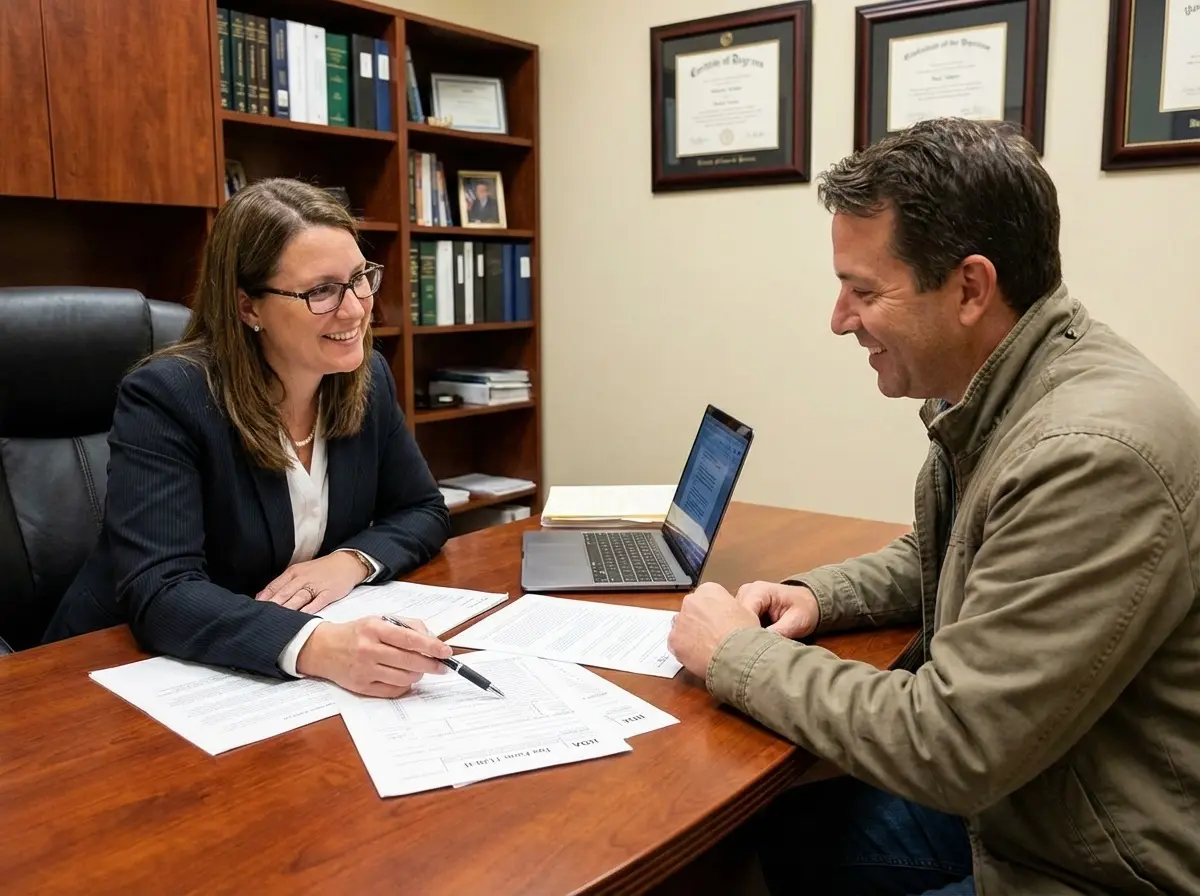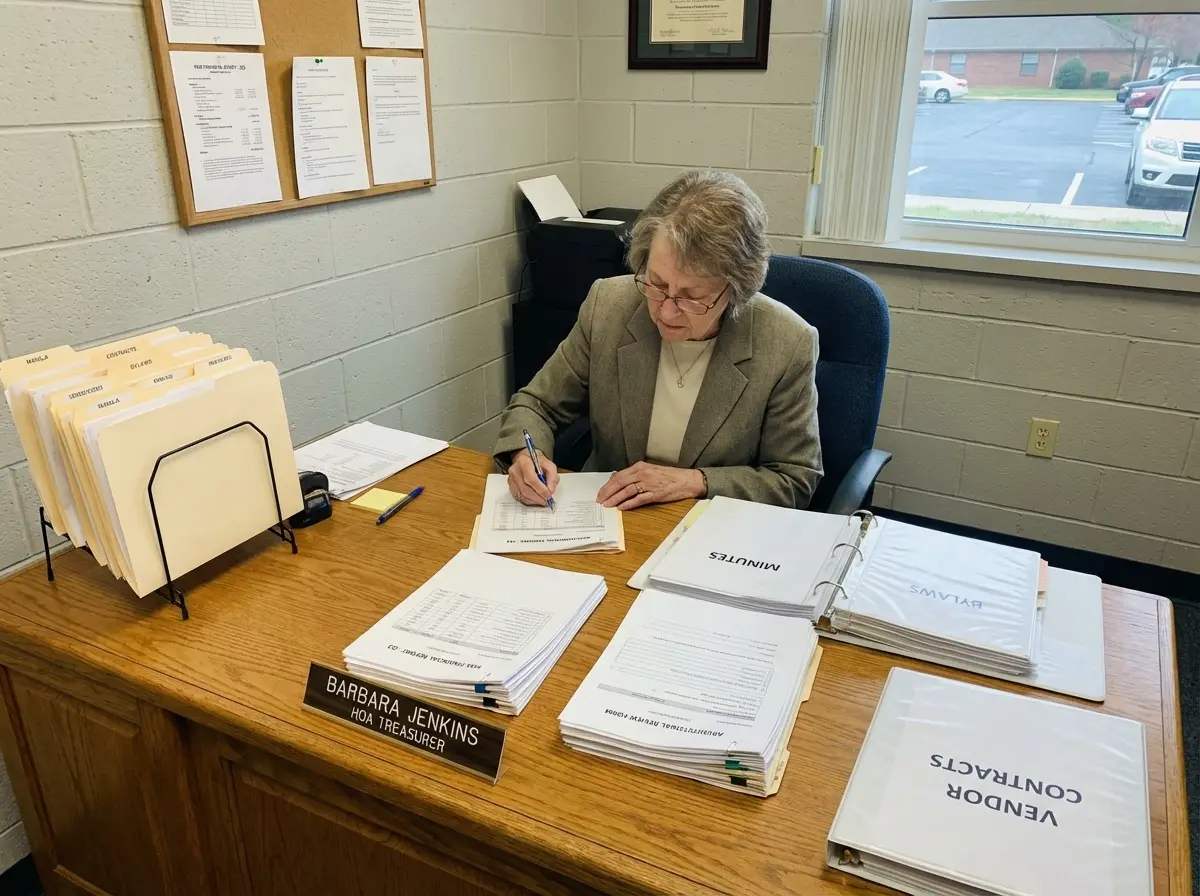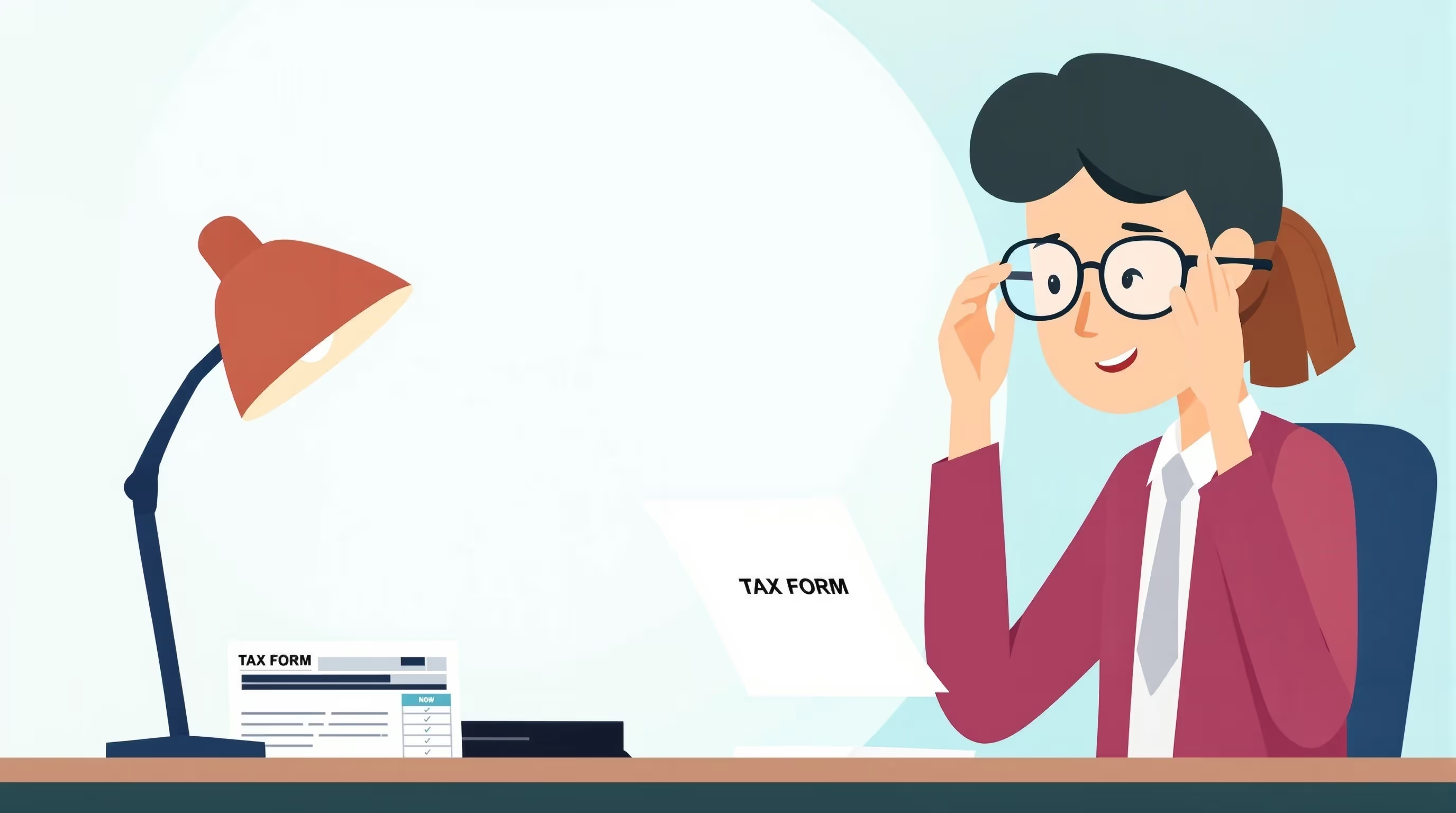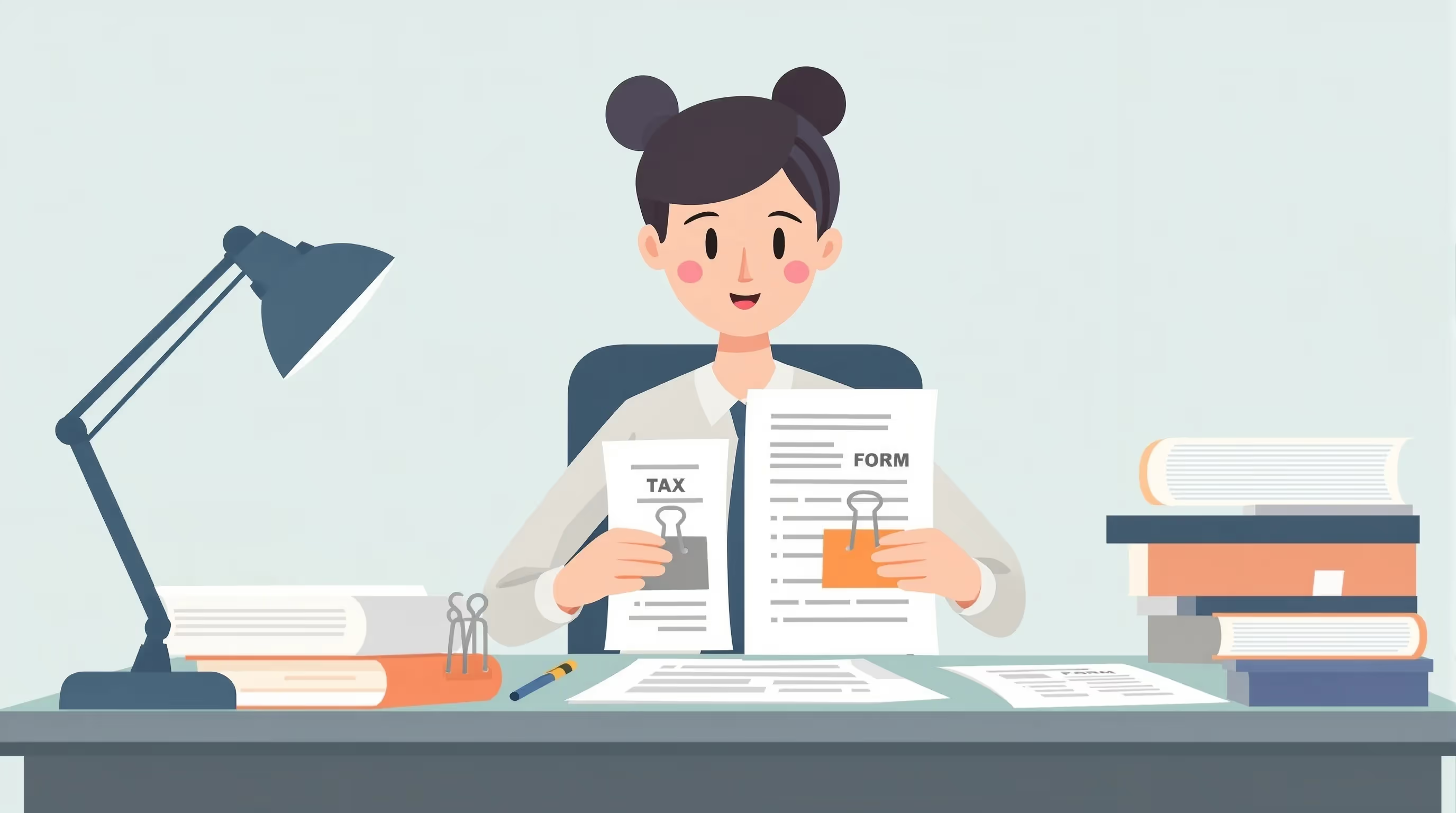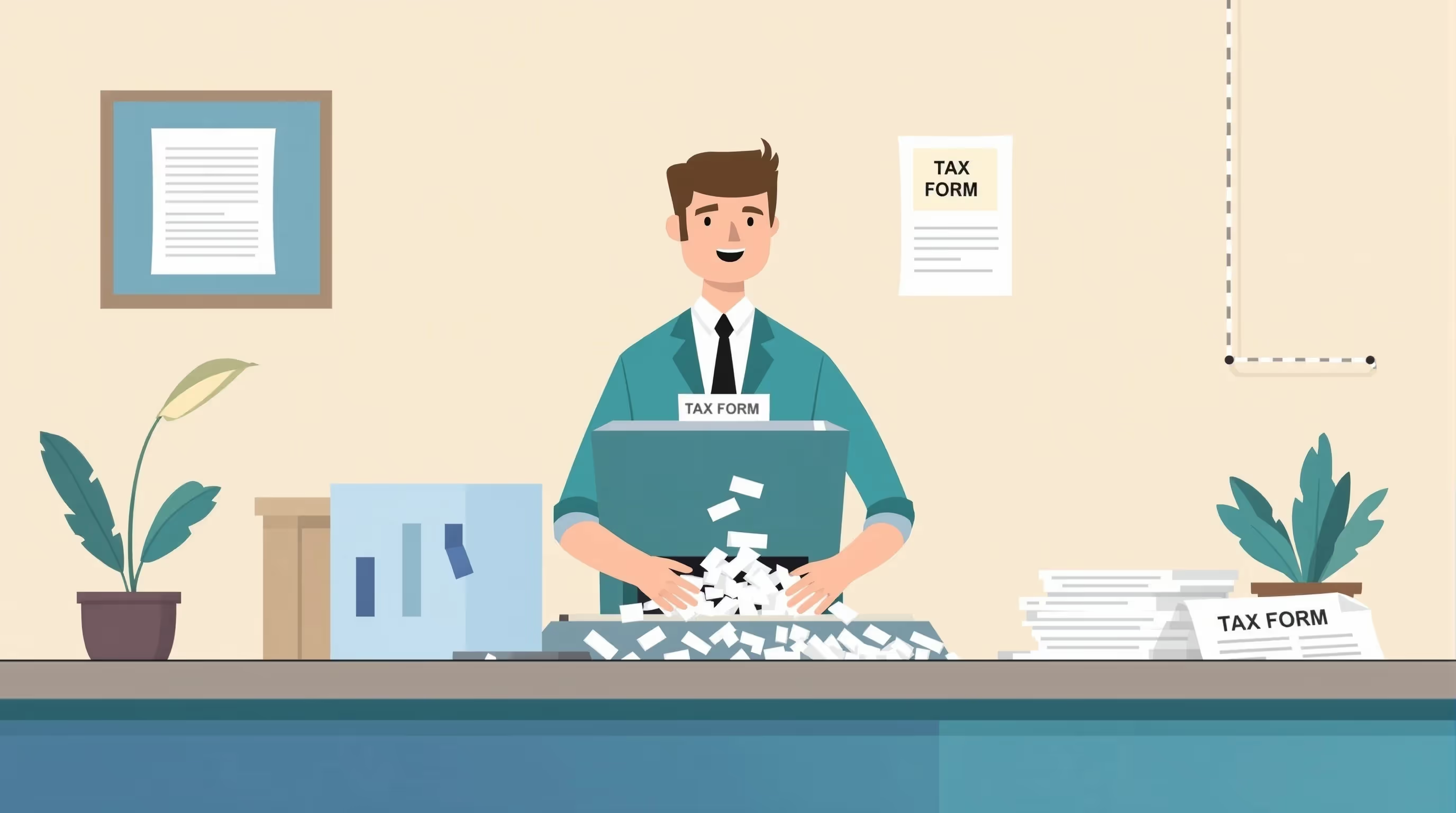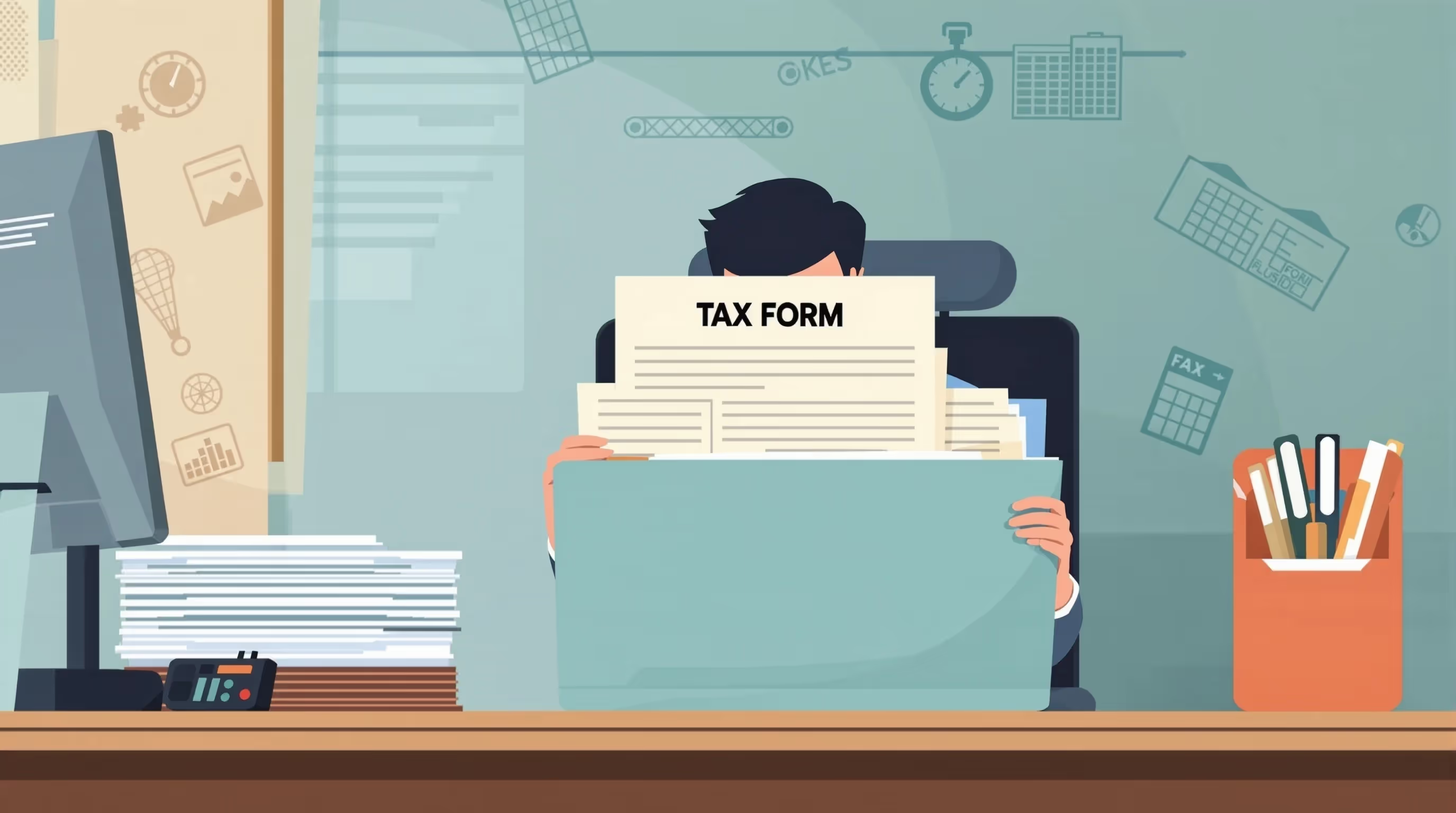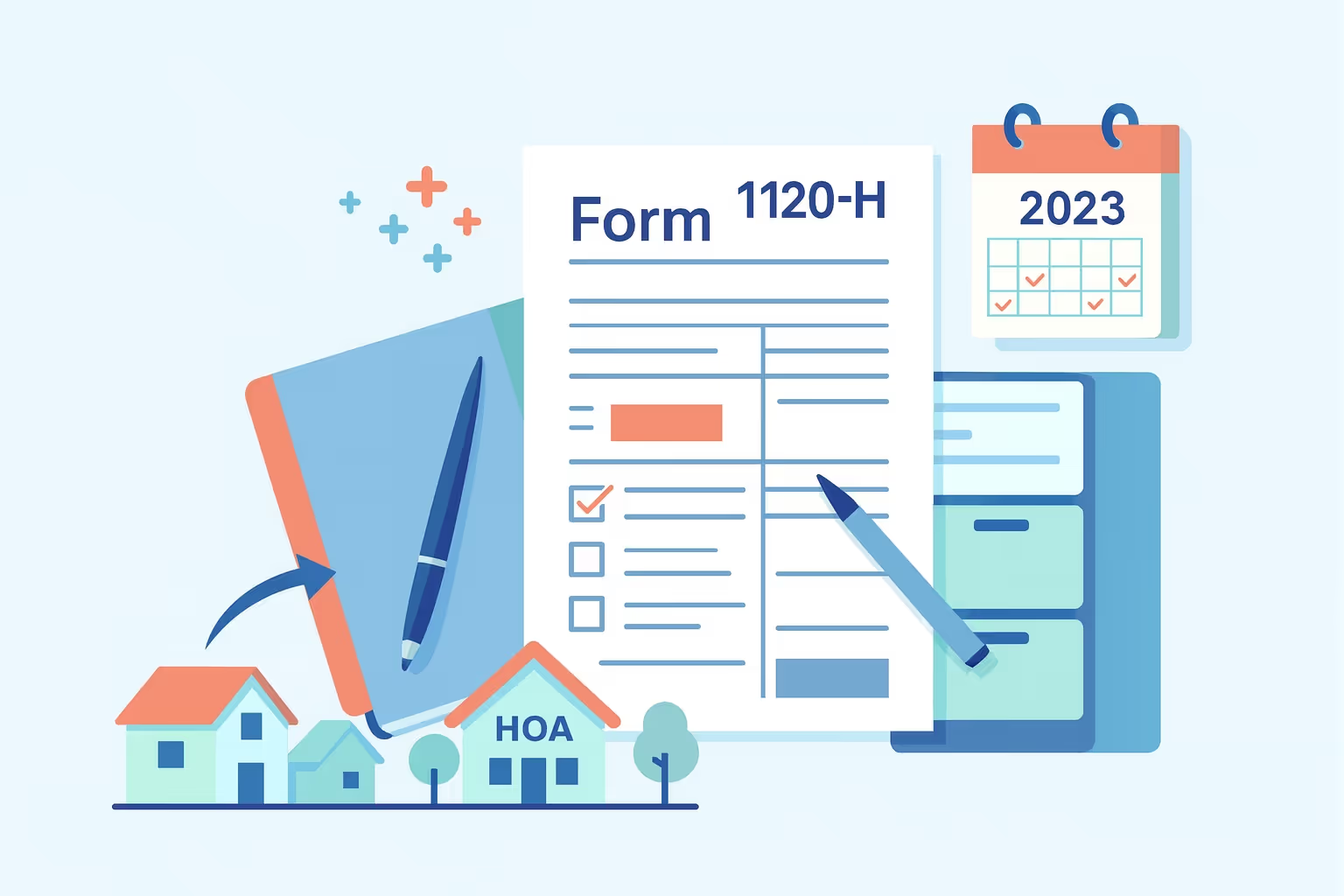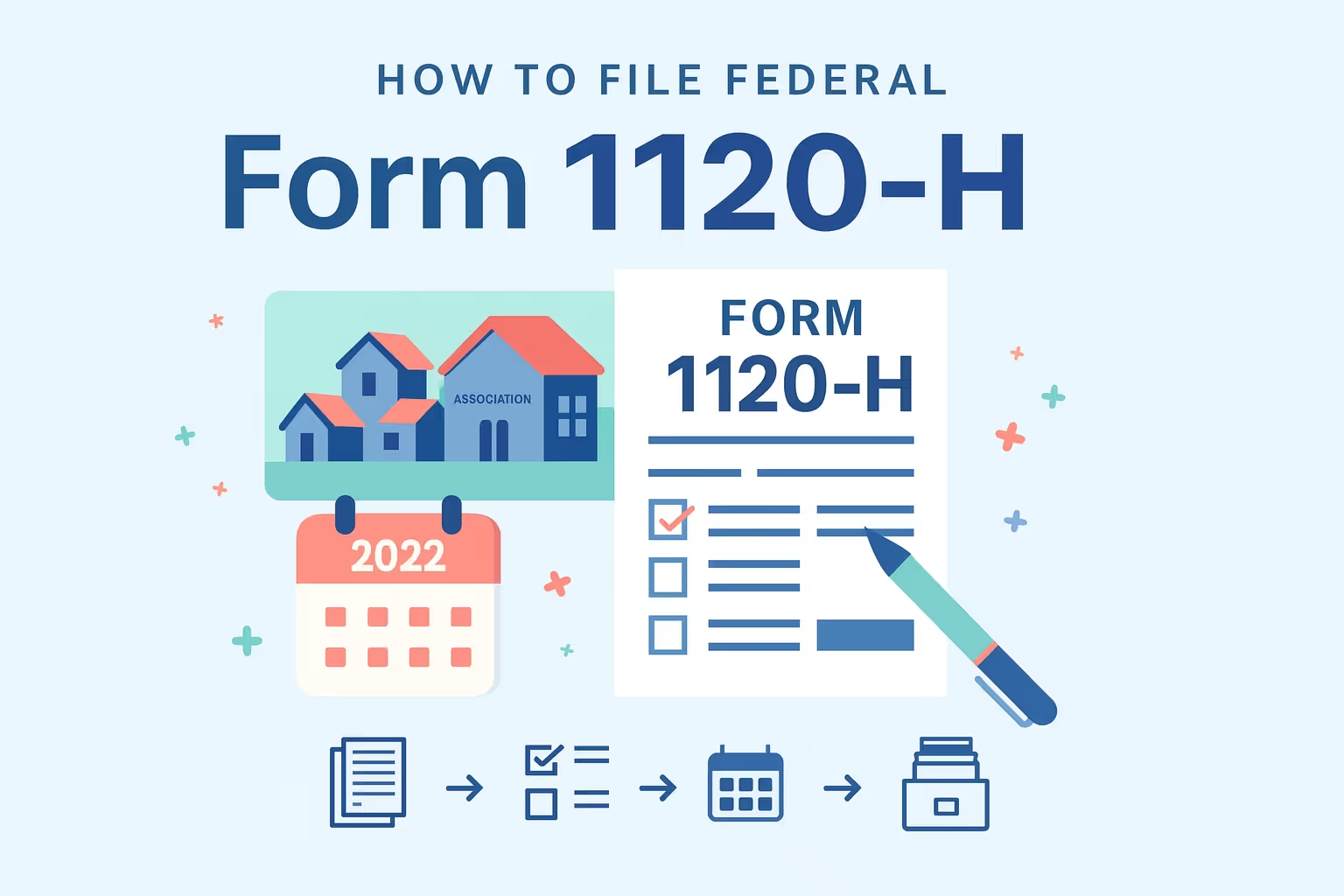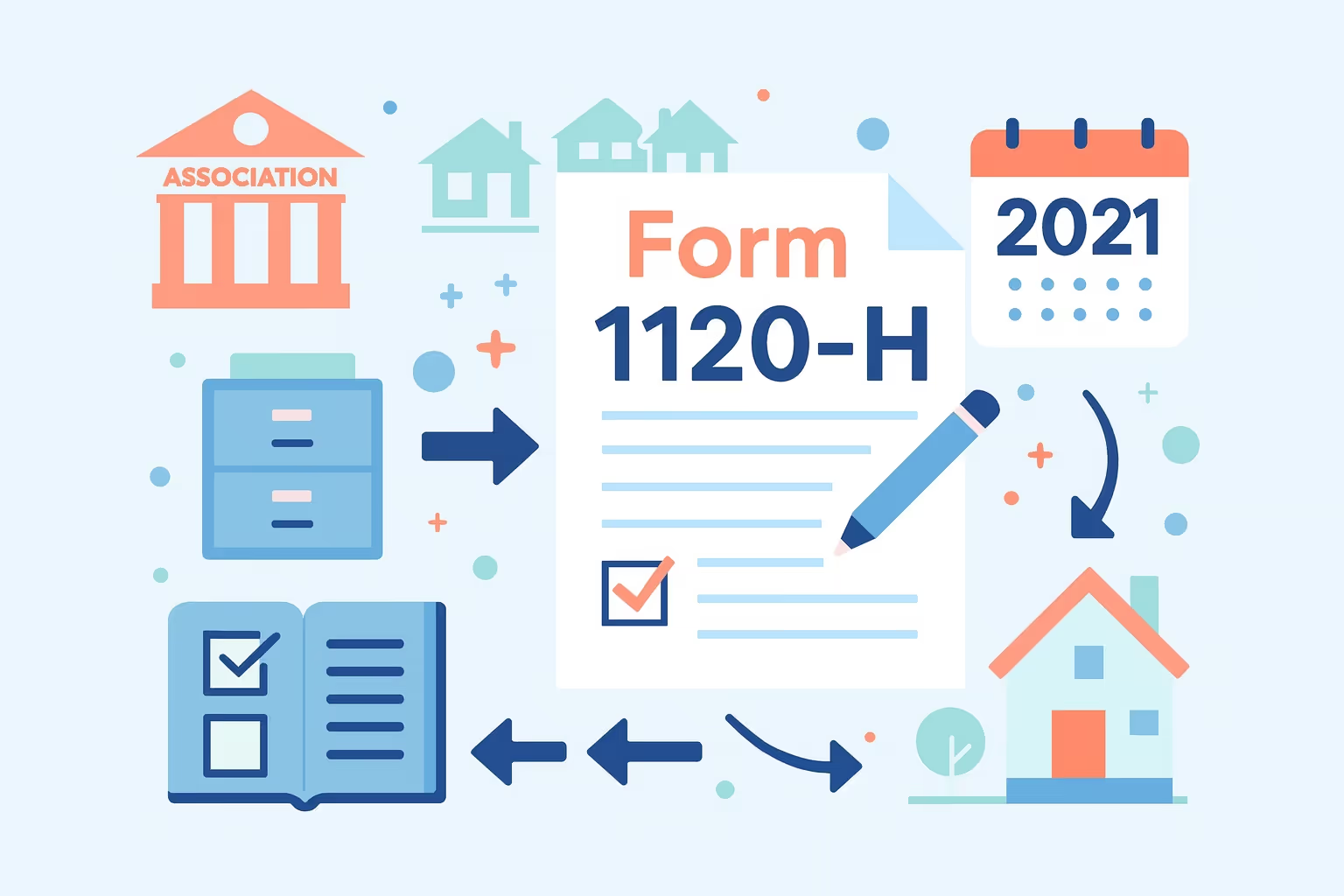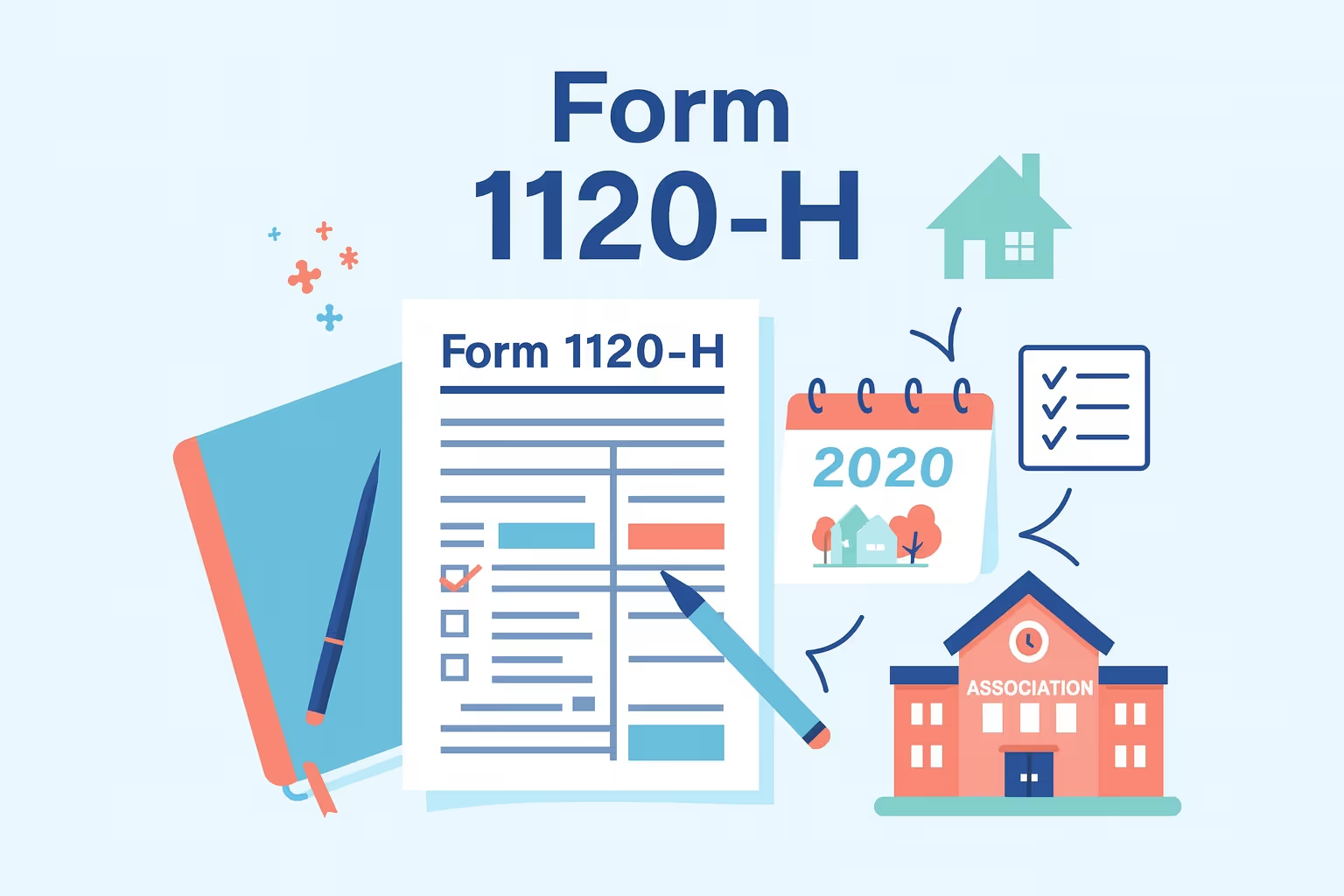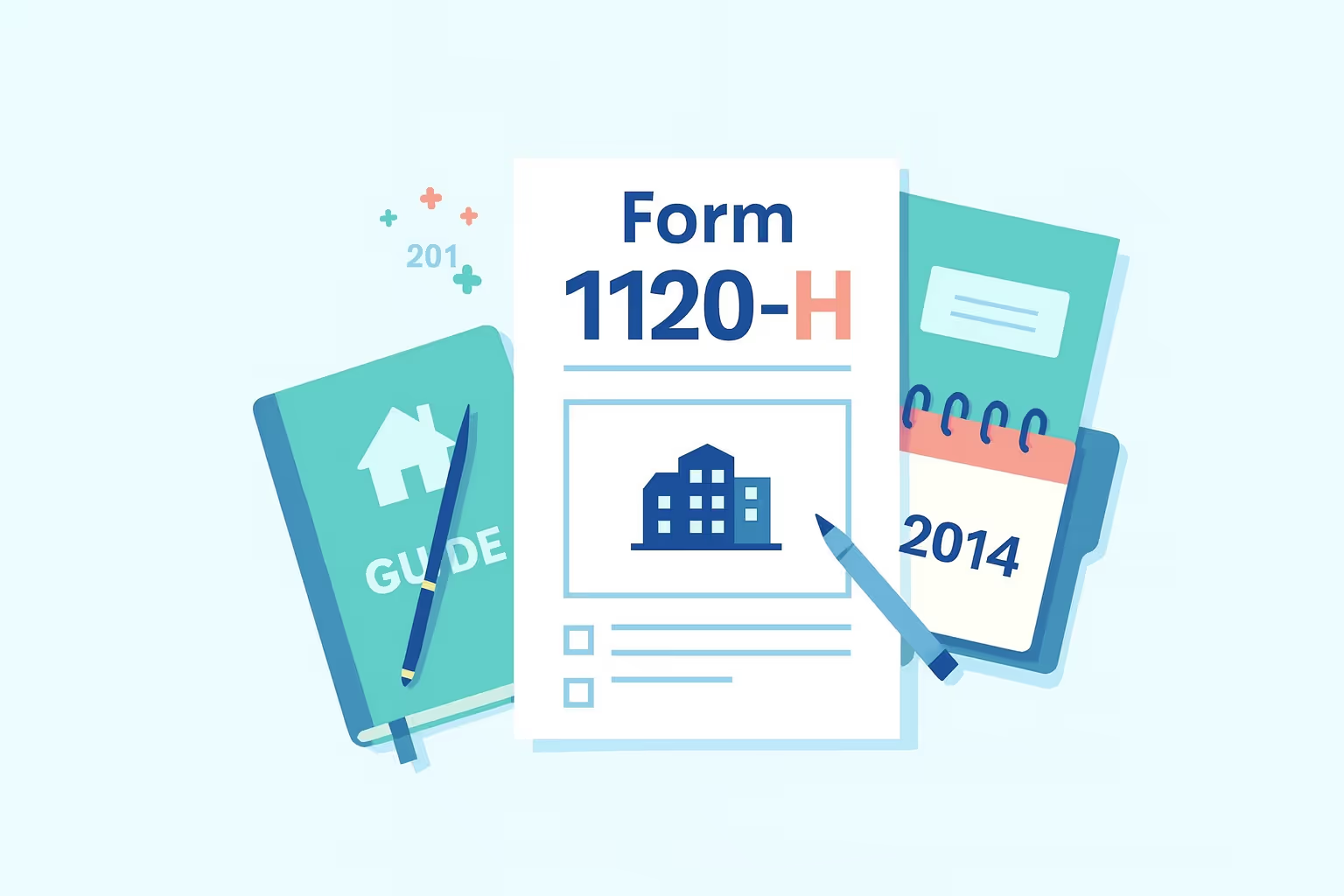
What IRS Form 1120-H (2025) Is For
IRS Form 1120-H (2025) is the income tax return for homeowners associations, condominium management associations, and timeshare associations that qualify to exclude exempt function income from gross income under Section 528. Exempt function income consists of membership dues, assessments, and fees used for association property and activities provided for members.
When a homeowners' association files Form 1120-H instead of Form 1120, it receives certain tax benefits, including simplified reporting and fixed tax rates. To qualify, at least 60% of gross income must be exempt function income, at least 90% of expenditures must support property operations, and no private shareholder may benefit. This election is made annually for each tax year.
When You’d Use Form 1120-H for 2025 (Late or Amended Filing)
Associations use this form for the tax year ending in 2025, including late or amended filings. Late filing occurs when the April 15, 2026, deadline (or the extended date with Form 7004) is missed. Penalties imposed by the IRS may include 5% per month, up to 25% of the unpaid tax, plus a minimum penalty of $510 for returns filed more than 60 days after the due date.
An amended corporation income tax return may be submitted to correct income, expenditures, taxable income, ownership interests, real property information, or recorded instruments such as easements or assessments. This applies to homeowners associations, condominium housing units, condominium project entities, and timeshare associations with timeshare ownership interests.
Key Rules Specific to 2025
- Mandatory e-filing for corporations: Associations filing 10 or more returns of any type must electronically submit Form 1120-H for the 2025 tax year.
- Increased late filing penalty: The minimum penalty for a return filed more than 60 days late increased to $510, which applies even when little or no tax is owed.
- Fixed tax rates for associations: Condominium housing units and residential associations remain taxed at 30%, while any timeshare association continues to be taxed at 32%.
- Strict refund claim windows: Refund claims must be filed within three years of the original due date or two years of payment.
- Annual election requirement: A homeowners association must file Form 1120-H each year to receive certain tax benefits instead of defaulting to Form 1120.
Browse more tax form instructions and filing guides in our Forms Hub.
Step-by-Step (High Level)
- Gather IRS transcripts: Request transcripts from IRS.gov or by phone to verify assessments, income, and prior tax return details before filing the new form.
- Use the correct-year Form 1120-H: Complete the 2025 paper version or electronic version and ensure all exempt function income, excess membership dues, interest, and other income are classified correctly.
- Attach supporting schedules: Include schedules such as Form 4136 or Form 3800, or deductions directly connected to taxable income, including real estate taxes and expenditures for non-member income.
- Submit the return properly: File electronically through an IRS-approved provider or mail the paper version to the IRS service center listed in the instructions, verifying the locked padlock icon when filing online.
- Retain records long-term: Keep all documents, assessments, association property records, and confirmations of filing for at least seven years in case the IRS requests them.
Learn more about federal tax filing through our IRS Form Help Center.
Common Mistakes and How to Avoid Them
- Misclassifying income: Avoid this by ensuring exempt function income consists only of dues and assessments from members used for association property or similar area services.
- Failing to make the annual election: Avoid this by filing Form 1120-H on time each tax year, since the election does not carry forward automatically.
- Improper expense allocation: Avoid this by deducting only expenditures directly connected to producing taxable income rather than property expenses that benefit exempt functions.
- Not meeting the 60% and 90% tests: Avoid this by reviewing all income and expenditures to confirm the association qualifies before choosing Form 1120-H.
- Incorrect entity information: Avoid this by verifying the association’s name, EIN, corporation details, address, and ownership interests before submitting the return.
- Ignoring the need for an extension: Avoid this by filing Form 7004 when more time is needed to file, keeping in mind the extension does not extend the time to pay tax.
Learn more about how to avoid business tax problems in our guide on How to File and Avoid Penalties.
What Happens After You File
After you file, e-filed returns are typically processed within several weeks, while paper versions may take longer. The IRS may send notices asking for clarification on property expenditures, assessments, deductions, or income classification. If tax is owed, the association may pay electronically, by card, or through an installment agreement using Form 9465.
Associations have appeal rights if the IRS disagrees with the tax return. The process begins with IRS Appeals and can proceed to the Tax Court if needed. These protections apply to homeowners associations, condominium associations, and timeshare project associations. Maintaining complete records helps streamline any future requests from the IRS.
FAQs
Can I still file IRS Form 1120-H (2025) if I missed the tax year deadline for the tax return for homeowners?
Yes, you may still file even after the due date, though penalties may apply. Late filings can affect the election for that year, but the IRS may grant relief when reasonable cause is shown. Filing as soon as possible helps reduce penalties and interest that may be imposed on the tax due.
How do homeowners' associations get records if they do not have copies of Form 1120-H or Form 1120?
You can request transcripts for the income tax return through IRS tools online or by phone. If complete copies are needed, you may submit Form 4506 and pay the required fee. Transcripts display income, assessments, deductions, and property details, facilitating the verification of compliance for future homeowners' association filings.
What penalties apply if Form 1120 or 1120-H was not filed for multiple tax years?
The IRS may impose penalties of 5% per month, up to 25%, for each unfiled income tax return, plus a minimum penalty of $510 for returns filed more than 60 days after the due date. Interest continues to build on unpaid tax and penalties. In cases of long-term noncompliance, the IRS may escalate enforcement to include the filing of liens or levies against the taxpayer.
Is there a statute of limitations if a homeowners' association never filed Form 1120-H or Form 1120 for a tax year?
There is no statute of limitations when a tax return was never filed, meaning the IRS can assess income tax at any time. If a return is filed, the typical limit is three years or six years when income is significantly understated. Filing establishes a clear timeline for taxpayers.
Should we amend state filings when submitting a late federal tax return for homeowners or a return for homeowners' associations?
Most states require amendments when the federal income tax return changes. If the federal form is corrected or filed late, an amended state filing is usually required to avoid penalties or discrepancies. Requirements vary by state, so it is essential to check with the state revenue agency for specific details.



